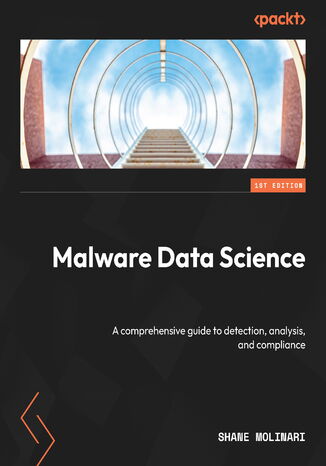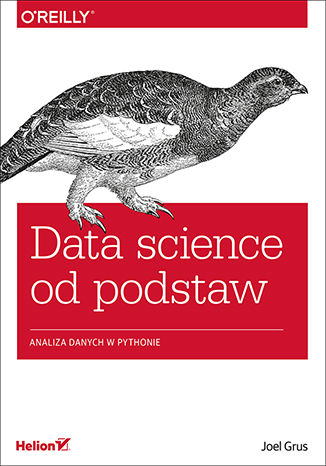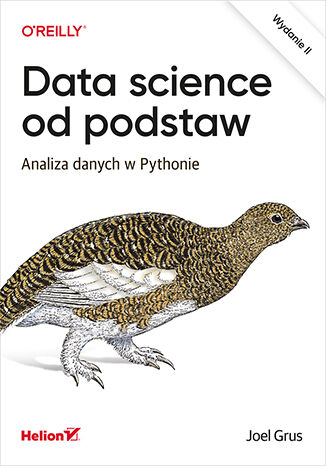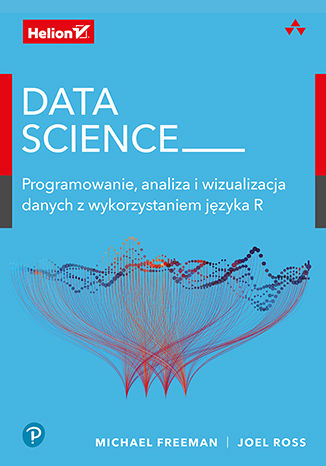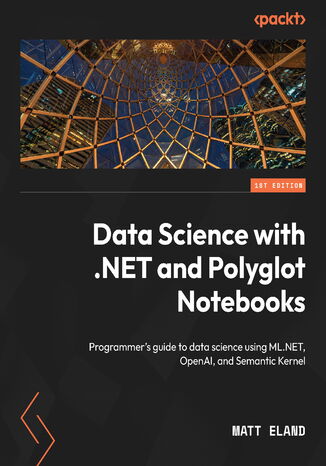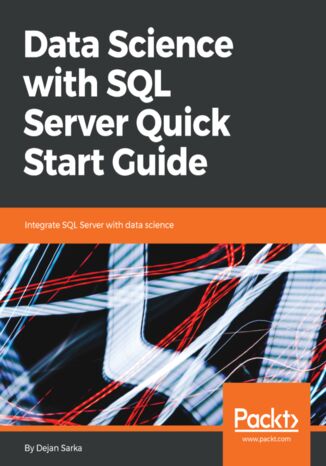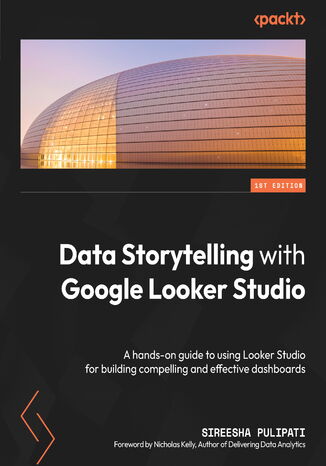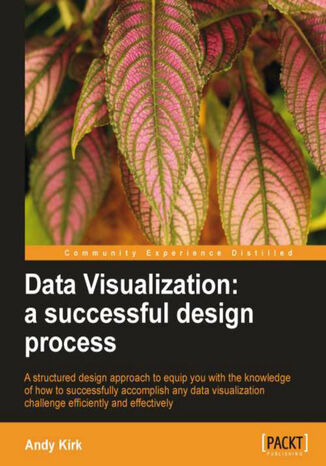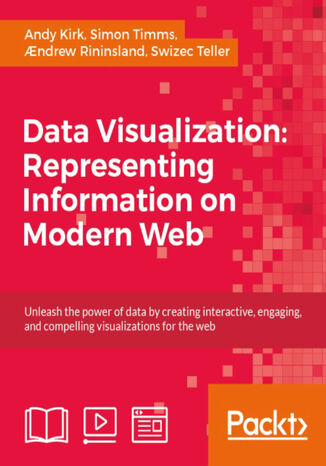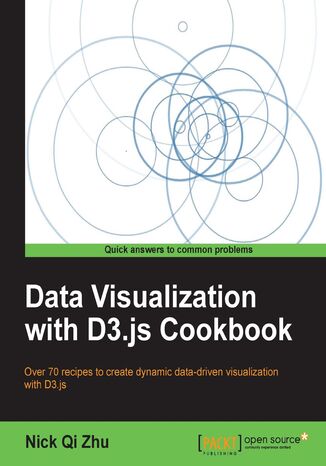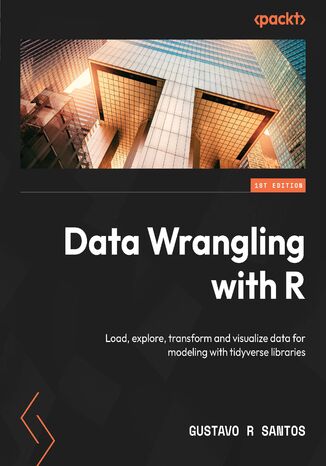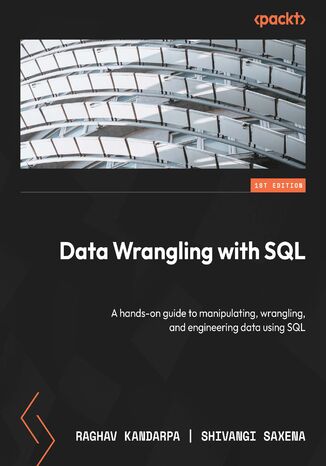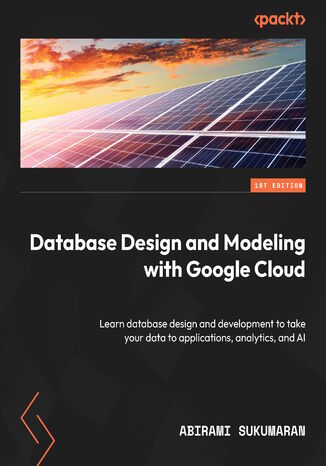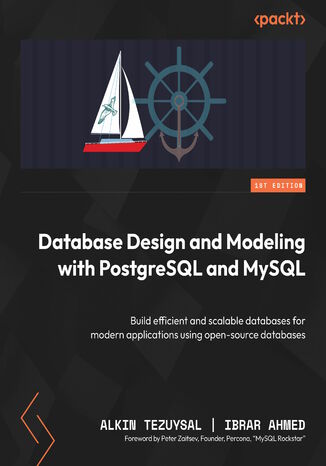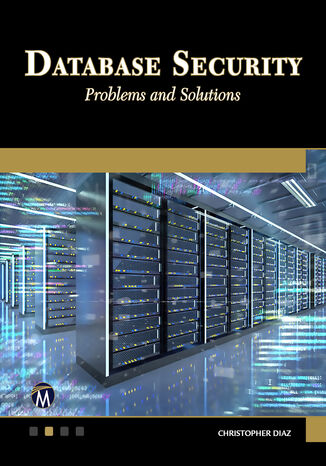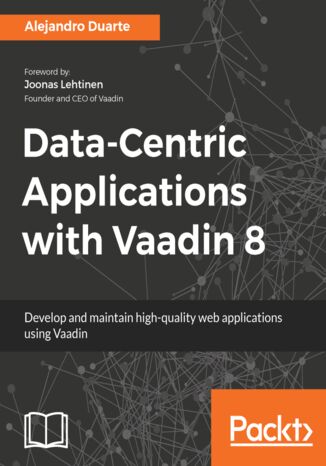Informatyka
Zajrzyj do kategorii Informatyka w księgarni internetowej Ebookpoint. Znajdziesz tutaj bestsellerowe książki, ebooki i kursy video z branży IT. Sięgnij po najlepszą literaturę dla specjalistów i rozwijaj doświadczenie, które już posiadasz, lub rozpocznij swoją przygodę z programowaniem, cyberbezpieczeństwem lub grafiką komputerową. Pogłębiaj swoją wiedzę tak, jak Ci wygodnie - z tradycyjną książką, wygodnym ebookiem lub nowoczesnym videokursem. Sprawdź, jakie tytuły znajdziesz w kategorii Informatyka!
Shane Molinari, Jim Packer
In today's world full of online threats, the complexity of harmful software presents a significant challenge for detection and analysis. This insightful guide will teach you how to apply the principles of data science to online security, acting as both an educational resource and a practical manual for everyday use.Data Science for Malware Analysis starts by explaining the nuances of malware, from its lifecycle to its technological aspects before introducing you to the capabilities of data science in malware detection by leveraging machine learning, statistical analytics, and social network analysis. As you progress through the chapters, you’ll explore the analytical methods of reverse engineering, machine language, dynamic scrutiny, and behavioral assessments of malicious software. You’ll also develop an understanding of the evolving cybersecurity compliance landscape with regulations such as GDPR and CCPA, and gain insights into the global efforts in curbing cyber threats.By the end of this book, you’ll have a firm grasp on the modern malware lifecycle and how you can employ data science within cybersecurity to ward off new and evolving threats.
Data science od podstaw. Analiza danych w Pythonie
Joel Grus
Współczesne ogromne zbiory danych zawierają odpowiedzi na prawie każde pytanie. Równocześnie nauka o danych jest dziedziną, która cokolwiek onieśmiela. Znajduje się gdzieś pomiędzy subtelnymi umiejętnościami hakerskimi, twardą wiedzą z matematyki i statystyki a merytoryczną znajomością zagadnień z danej branży. Co więcej, dziedzina ta niezwykle dynamicznie się rozwija. Trud włożony w naukę o danych niewątpliwie się jednak opłaca: biegły analityk danych może liczyć na dobrze płatną, inspirującą i bardzo atrakcyjną pracę. Dzięki tej książce opanujesz najważniejsze zagadnienia związane z matematyką i statystyką, będziesz także rozwijać umiejętności hakerskie. W ten sposób zyskasz podstawy pozwalające na rozpoczęcie przygody z analizą danych. Gruntownie zapoznasz się z potrzebnymi narzędziami i algorytmami. Pozwoli Ci to lepiej zrozumieć ich działanie. Poszczególne przykłady, którymi zilustrowano omawiane zagadnienia, są przejrzyste, dobrze opisane i zrozumiałe. Podczas lektury książki poznasz biblioteki, które umożliwią zaimplementowanie omówionych technik podczas analizy dużych zbiorów danych. Szybko się przekonasz, że aby zostać analitykiem danych, wystarczy odrobina ciekawości, sporo chęci, mnóstwo ciężkiej pracy i... ta książka. Najważniejsze zagadnienia: Praktyczne wprowadzenie do Pythona Podstawy algebry liniowej, statystyki i rachunku prawdopodobieństwa w analizie danych Podstawy uczenia maszynowego Implementacje algorytmów modeli, w tym naiwny klasyfikator bayesowski, regresja liniowa, regresja logistyczna, drzewa decyzyjne, sieci neuronowe i grupowanie, MapReduce Systemy rekomendacji i mechanizmy przetwarzania języka naturalnego Korzystanie z mediów społecznościowych i baz danych. Python. Wyciśniesz z danych każdą kroplę wiedzy!
Data science od podstaw. Analiza danych w Pythonie. Wydanie II
Joel Grus
Analityka danych jest uważana za wyjątkowo obiecującą dziedzinę wiedzy. Rozwija się błyskawicznie i znajduje coraz to nowsze zastosowania. Profesjonaliści biegli w eksploracji danych i wydobywaniu z nich pożytecznych informacji mogą liczyć na interesującą pracę i bardzo atrakcyjne warunki zatrudnienia. Jednak aby zostać analitykiem danych, trzeba znać matematykę i statystykę, a także nauczyć się programowania. Umiejętności w zakresie uczenia maszynowego i uczenia głębokiego również są ważne. W przypadku tak specyficznej dziedziny, jaką jest nauka o danych, szczególnie istotne jest zdobycie gruntownych podstaw i dogłębne ich zrozumienie. W tym przewodniku opisano zagadnienia związane z podstawami nauki o danych. Wyjaśniono niezbędne elementy matematyki i statystyki. Przedstawiono także techniki budowy potrzebnych narzędzi i sposoby działania najistotniejszych algorytmów. Książka została skonstruowana tak, aby poszczególne implementacje były jak najbardziej przejrzyste i zrozumiałe. Zamieszczone tu przykłady napisano w Pythonie: jest to język dość łatwy do nauki, a pracę na danych ułatwia szereg przydatnych bibliotek Pythona. W drugim wydaniu znalazły się nowe tematy, takie jak uczenie głębokie, statystyka i przetwarzanie języka naturalnego, a także działania na ogromnych zbiorach danych. Zagadnienia te często pojawiają się w pracy współczesnego analityka danych. W książce między innymi: elementy algebry liniowej, statystyki i rachunku prawdopodobieństwa zbieranie, oczyszczanie i eksploracja danych algorytmy modeli analizy danych podstawy uczenia maszynowego systemy rekomendacji i przetwarzanie języka naturalnego analiza sieci społecznościowych i algorytm MapReduce Nauka o danych: bazuj na solidnych podstawach!
Data Science. Programowanie, analiza i wizualizacja danych z wykorzystaniem języka R
Michael Freeman, Joel Ross
Aby surowe dane przekuć w gotową do wykorzystania wiedzę, potrzebna jest umiejętność ich analizy, przekształcania i niekiedy również wizualizacji. Nagrodą za włożony w to wysiłek jest lepsze rozumienie różnych złożonych zagadnień z wielu dziedzin wiedzy. Co więcej, znajomość procesów programowego przetwarzania danych pozwala na szybkie wykrywanie i opisywanie wzorców danych, praktycznie niemożliwych do dostrzeżenia innymi technikami. Dla wielu badaczy jednak barierą na drodze do skorzystania z tych atrakcyjnych możliwości jest konieczność pisania kodu. Oto podręcznik programowania w języku R dla analityków danych, szczególnie przydatny dla osób, które nie mają doświadczenia w tej dziedzinie. Dokładnie opisano tu potrzebne narzędzia i technologie. Zamieszczono wskazówki dotyczące instalacji i konfiguracji oprogramowania do pisania kodu, wykonywania go i zarządzania nim, a także śledzenia wersji projektów i zmian w nich oraz korzystania z innych podstawowych mechanizmów. Poszczególne kroki tworzenia kodu w języku R wyjaśniono dokładnie i przystępnie. Dzięki tej książce można płynnie przejść do konkretnych zadań i budować potrzebne aplikacje. Zrozumienie prezentowanych w niej treści ułatwiają liczne przykłady i ćwiczenia, co pozwala szybko przystąpić do skutecznego analizowania własnych zbiorów danych. W tej książce między innymi: przygotowanie środowiska pracy i rozpoczęcie programowania w R podstawy zarządzania projektami, kontrola wersji i generowanie dokumentacji ramki danych, pakiety dplyr i tidyr kod do wizualizacji danych i pakiet ggplot2 tworzenie aplikacji i techniki współpracy w zespołach specjalistów Po prostu R i dane. Wyciśniesz każdą kroplę wiedzy!
Matt Eland
As the fields of data science, machine learning, and artificial intelligence rapidly evolve, .NET developers are eager to leverage their expertise to dive into these exciting domains but are often unsure of how to do so. Data Science in .NET with Polyglot Notebooks is the practical guide you need to seamlessly bring your .NET skills into the world of analytics and AI. With Microsoft’s .NET platform now robustly supporting machine learning and AI tasks, the introduction of tools such as .NET Interactive kernels and Polyglot Notebooks has opened up a world of possibilities for .NET developers. This book empowers you to harness the full potential of these cutting-edge technologies, guiding you through hands-on experiments that illustrate key concepts and principles. Through a series of interactive notebooks, you’ll not only master technical processes but also discover how to integrate these new skills into your current role or pivot to exciting opportunities in the data science field. By the end of the book, you’ll have acquired the necessary knowledge and confidence to apply cutting-edge data science techniques and deliver impactful solutions within the .NET ecosystem.
Data Science with SQL Server Quick Start Guide. Integrate SQL Server with data science
Dejan Sarka
SQL Server only started to fully support data science with its two most recent editions. If you are a professional from both worlds, SQL Server and data science, and interested in using SQL Server and Machine Learning (ML) Services for your projects, then this is the ideal book for you.This book is the ideal introduction to data science with Microsoft SQL Server and In-Database ML Services. It covers all stages of a data science project, from businessand data understanding,through data overview, data preparation, modeling and using algorithms, model evaluation, and deployment.You will learn to use the engines and languages that come with SQL Server, including ML Services with R and Python languages and Transact-SQL. You will also learn how to choose which algorithm to use for which task, and learn the working of each algorithm.
Sireesha Pulipati
Presenting data visually makes it easier for organizations and individuals to interpret and analyze information. Looker Studio is an easy-to-use, collaborative tool that enables you to transform your data into engaging visualizations. This allows you to build and share dashboards that help monitor key performance indicators, identify patterns, and generate insights to ultimately drive decisions and actions.Data Storytelling with Looker Studio begins by laying out the foundational design principles and guidelines that are essential to creating accurate, effective, and compelling data visualizations. Next, you’ll delve into features and capabilities of Looker Studio – from basic to advanced – and explore their application with examples. The subsequent chapters walk you through building dashboards with a structured three-stage process called the 3D approach using real-world examples that’ll help you understand the various design and implementation considerations. This approach involves determining the objectives and needs of the dashboard, designing its key components and layout, and developing each element of the dashboard.By the end of this book, you will have a solid understanding of the storytelling approach and be able to create data stories of your own using Looker Studio.
Data Visualization: a successful design process
Andy Kirk
Do you want to create more attractive charts? Or do you have huge data sets and need to unearth the key insights in a visual manner? Data visualization is the representation and presentation of data, using proven design techniques to bring alive the patterns, stories and key insights locked away.Data Visualization: a Successful Design Process explores the unique fusion of art and science that is data visualization; a discipline for which instinct alone is insufficient for you to succeed in enabling audiences to discover key trends, insights and discoveries from your data. This book will equip you with the key techniques required to overcome contemporary data visualization challenges. You'll discover a proven design methodology that helps you develop invaluable knowledge and practical capabilities.You'll never again settle for a default Excel chart or resort to fancy-looking graphs. You will be able to work from the starting point of acquiring, preparing and familiarizing with your data, right through to concept design. Choose your killer visual representation to engage and inform your audience.Data Visualization: a Successful Design Process will inspire you to relish any visualization project with greater confidence and bullish know-how; turning challenges into exciting design opportunities.
Aendrew Rininsland , Andy Kirk, Swizec Teller,...
Do you want to create more attractive charts? Or do you have huge data sets and need to unearth the key insights in a visual manner? Data visualization is the representation and presentation of data, using proven design techniques to bring alive the patterns, stories, and key insights that are locked away.This learning path is divided into three modules. The first module will equip you with the key techniques required to overcome contemporary data visualization challenges. In the second module, Social Data Visualization with HTML5 and JavaScript, it teaches you how to leverage HTML5 techniques through JavaScript to build visualizations.In third module, Learning d3.js Data Visualization, will lead you to D3, which has emerged as one of the leading platforms to develop beautiful, interactive visualizations over the web. By the end of this course, you will have unlocked the mystery behind successful data visualizations.This Learning Path combines some of the best that Packt has to offer in one complete, curated package. It includes content from the following Packt products:? Data Visualization: a successful design process by Andy Kirk? Social Data Visualization with HTML5 and JavaScript by Simon Timms? Learning d3.js Data Visualization, Second Edition by Ændrew Rininsland and Swizec Teller
Nick Zhu
D3.js is a JavaScript library designed to display digital data in dynamic graphical form. It helps you bring data to life using HTML, SVG, and CSS. D3 allows great control over the final visual result, and it is the hottest and most powerful web-based data visualization technology on the market today.Data Visualization with D3.js Cookbook is packed with practical recipes to help you learn every aspect of data visualization with D3.Data Visualization with D3.js Cookbook is designed to provide you with all the guidance you need to get to grips with data visualization with D3. With this book, you will create breathtaking data visualization with professional efficiency and precision with the help of practical recipes, illustrations, and code samples.Data Visualization with D3.js Cookbook starts off by touching upon data visualization and D3 basics before gradually taking you through a number of practical recipes covering a wide range of topics you need to know about D3.You will learn the fundamental concepts of data visualization, functional JavaScript, and D3 fundamentals including element selection, data binding, animation, and SVG generation. You will also learn how to leverage more advanced techniques such as custom interpolators, custom tweening, timers, the layout manager, force manipulation, and so on. This book also provides a number of pre-built chart recipes with ready-to-go sample code to help you bootstrap quickly.
Gustavo Santos
In this information era, where large volumes of data are being generated every day, companies want to get a better grip on it to perform more efficiently than before. This is where skillful data analysts and data scientists come into play, wrangling and exploring data to generate valuable business insights. In order to do that, you’ll need plenty of tools that enable you to extract the most useful knowledge from data.Data Wrangling with R will help you to gain a deep understanding of ways to wrangle and prepare datasets for exploration, analysis, and modeling. This data book enables you to get your data ready for more optimized analyses, develop your first data model, and perform effective data visualization.The book begins by teaching you how to load and explore datasets. Then, you’ll get to grips with the modern concepts and tools of data wrangling. As data wrangling and visualization are intrinsically connected, you’ll go over best practices to plot data and extract insights from it. The chapters are designed in a way to help you learn all about modeling, as you will go through the construction of a data science project from end to end, and become familiar with the built-in RStudio, including an application built with Shiny dashboards.By the end of this book, you’ll have learned how to create your first data model and build an application with Shiny in R.
Data Wrangling with SQL. A hands-on guide to manipulating, wrangling, and engineering data using SQL
Raghav Kandarpa, Shivangi Saxena
The amount of data generated continues to grow rapidly, making it increasingly important for businesses to be able to wrangle this data and understand it quickly and efficiently. Although data wrangling can be challenging, with the right tools and techniques you can efficiently handle enormous amounts of unstructured data.The book starts by introducing you to the basics of SQL, focusing on the core principles and techniques of data wrangling. You’ll then explore advanced SQL concepts like aggregate functions, window functions, CTEs, and subqueries that are very popular in the business world. The next set of chapters will walk you through different functions within SQL query that cause delays in data transformation and help you figure out the difference between a good query and bad one. You’ll also learn how data wrangling and data science go hand in hand. The book is filled with datasets and practical examples to help you understand the concepts thoroughly, along with best practices to guide you at every stage of data wrangling.By the end of this book, you’ll be equipped with essential techniques and best practices for data wrangling, and will predominantly learn how to use clean and standardized data models to make informed decisions, helping businesses avoid costly mistakes.
Abirami Sukumaran, Priyanka Vergadia, Bagirathi Narayanan
In the age of lightning-speed delivery, customers want everything developed, built, and delivered at high speed and at scale. Knowledge, design, and choice of database is critical in that journey, but there is no one-size-fits-all solution. This book serves as a comprehensive and practical guide for data professionals who want to design and model their databases efficiently. The book begins by taking you through business, technical, and design considerations for databases. Next, it takes you on an immersive structured database deep dive for both transactional and analytical real-world use cases using Cloud SQL, Spanner, and BigQuery. As you progress, you’ll explore semi-structured and unstructured database considerations with practical applications using Firestore, cloud storage, and more. You’ll also find insights into operational considerations for databases and the database design journey for taking your data to AI with Vertex AI APIs and generative AI examples. By the end of this book, you will be well-versed in designing and modeling data and databases for your applications using Google Cloud.
Alkin Tezuysal, Ibrar Ahmed, Peter Zaitsev
Database Design and Modeling with PostgreSQL and MySQL will equip you with the knowledge and skills you need to architect, build, and optimize efficient databases using two of the most popular open-source platforms.As you progress through the chapters, you'll gain a deep understanding of data modeling, normalization, and query optimization, supported by hands-on exercises and real-world case studies that will reinforce your learning. You'll explore topics like concurrency control, backup and recovery strategies, and seamless integration with web and mobile applications. These advanced topics will empower you to tackle complex database challenges confidently and effectively. Additionally, you’ll explore emerging trends, such as NoSQL databases and cloud-based solutions, ensuring you're well-versed in the latest developments shaping the database landscape. By embracing these cutting-edge technologies, you'll be prepared to adapt and innovate in today's ever-evolving digital world.By the end of this book, you’ll be able to understand the technologies that exist to design a modern and scalable database for developing web applications using MySQL and PostgreSQL open-source databases.
Database Security. Master the Art of Protecting Your Data with Cutting-Edge Techniques
Mercury Learning and Information, Christopher Diaz
This book provides a comprehensive guide to resolving database security issues during design, implementation, and production phases. It emphasizes specific measures and controls unique to database security, beyond general information security. Topics include account credential management, data access management, and techniques like database normalization, referential integrity, transactions, locks, and check constraints.The importance of database security lies in protecting sensitive data from unauthorized access and ensuring data integrity. This book is designed for professionals, workshops, and self-learners, offering hands-on demonstrations with major Database Management Systems (MySQL, Oracle, and Microsoft SQL Server) across various computing platforms (Linux/UNIX, MacOS, Windows).Starting with an introduction to information, data, and database security, the book covers database design, management, administration, user accounts, privileges, roles, and security controls for confidentiality. It also delves into transactions and data integrity with concurrent access. Each chapter includes questions and projects to reinforce learning and comprehension.
Alejandro Duarte
Vaadin is an open-source Java framework used to build modern user interfaces. Vaadin 8 simplifies application development and improves user experience. The book begins with an overview of the architecture of Vaadin applications and the way you can organize your code in modules.Then it moves to the more advanced topics about advanced topics such as internationalization, authentication, authorization, and database connectivity. The book also teaches you how to implement CRUD views, how to generate printable reports, and how to manage data with lazy loading.By the end of this book you will be able to architect, implement, and deploy stunning Vaadin applications, and have the knowledge to master web development with Vaadin.

